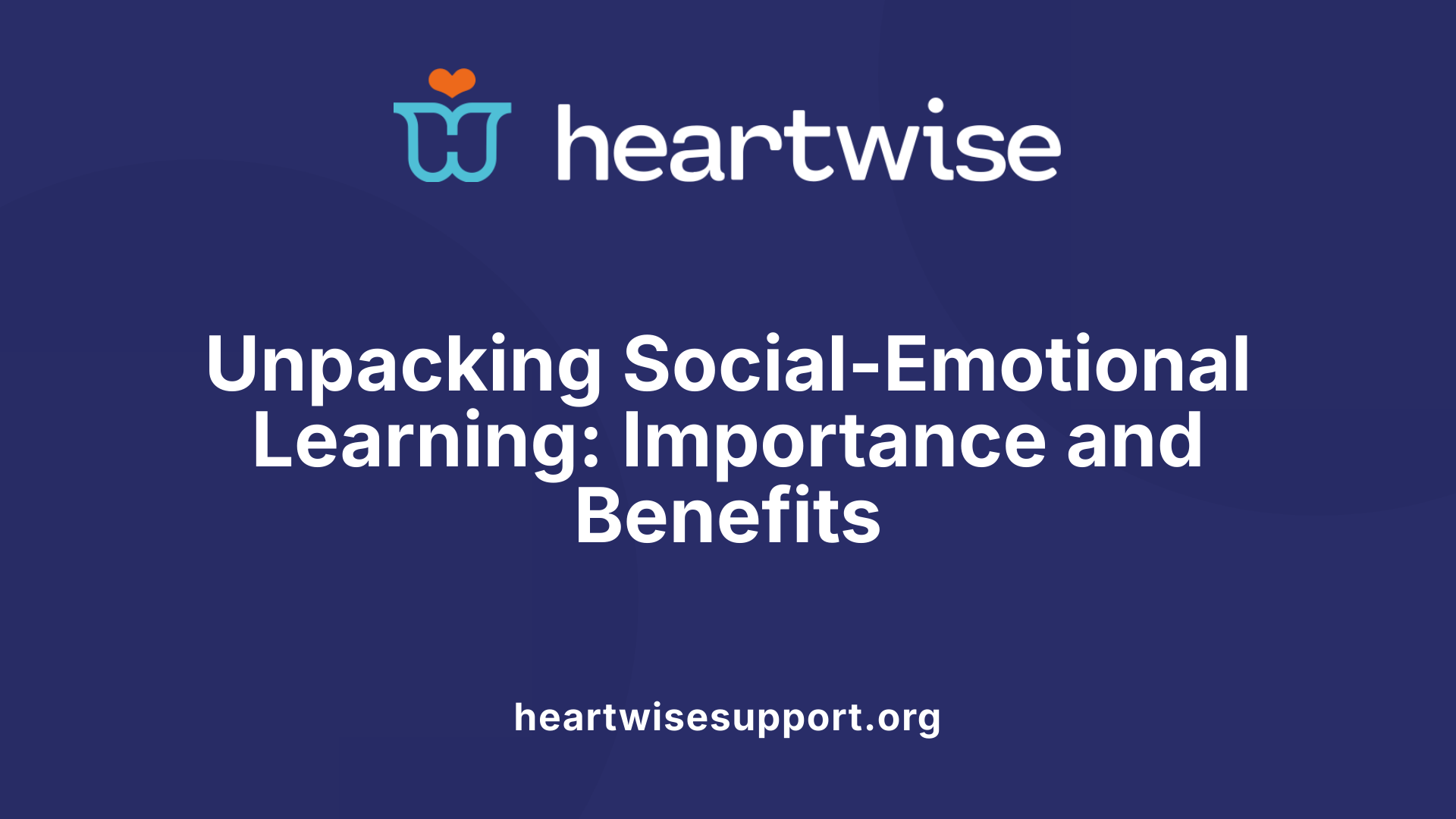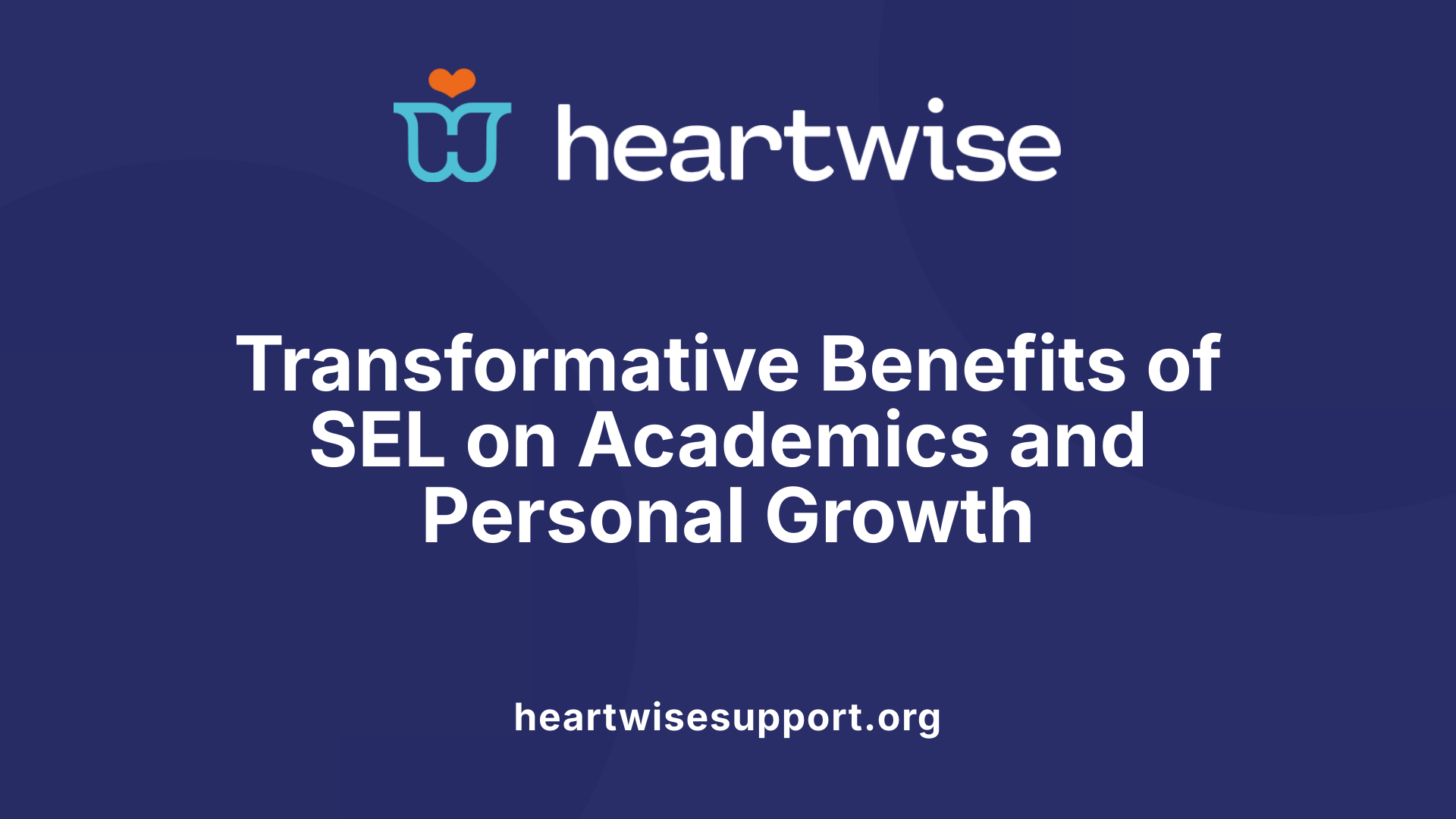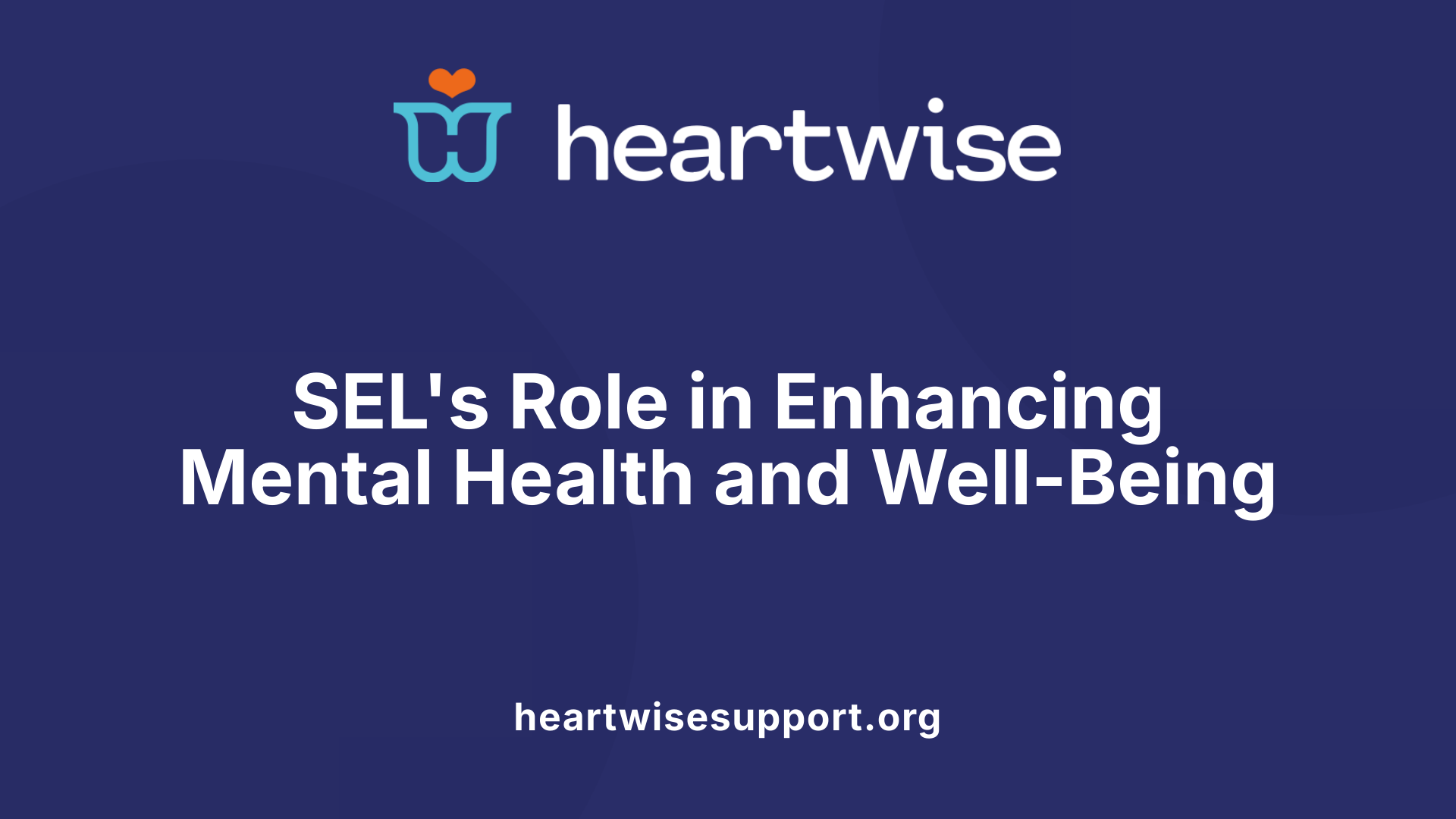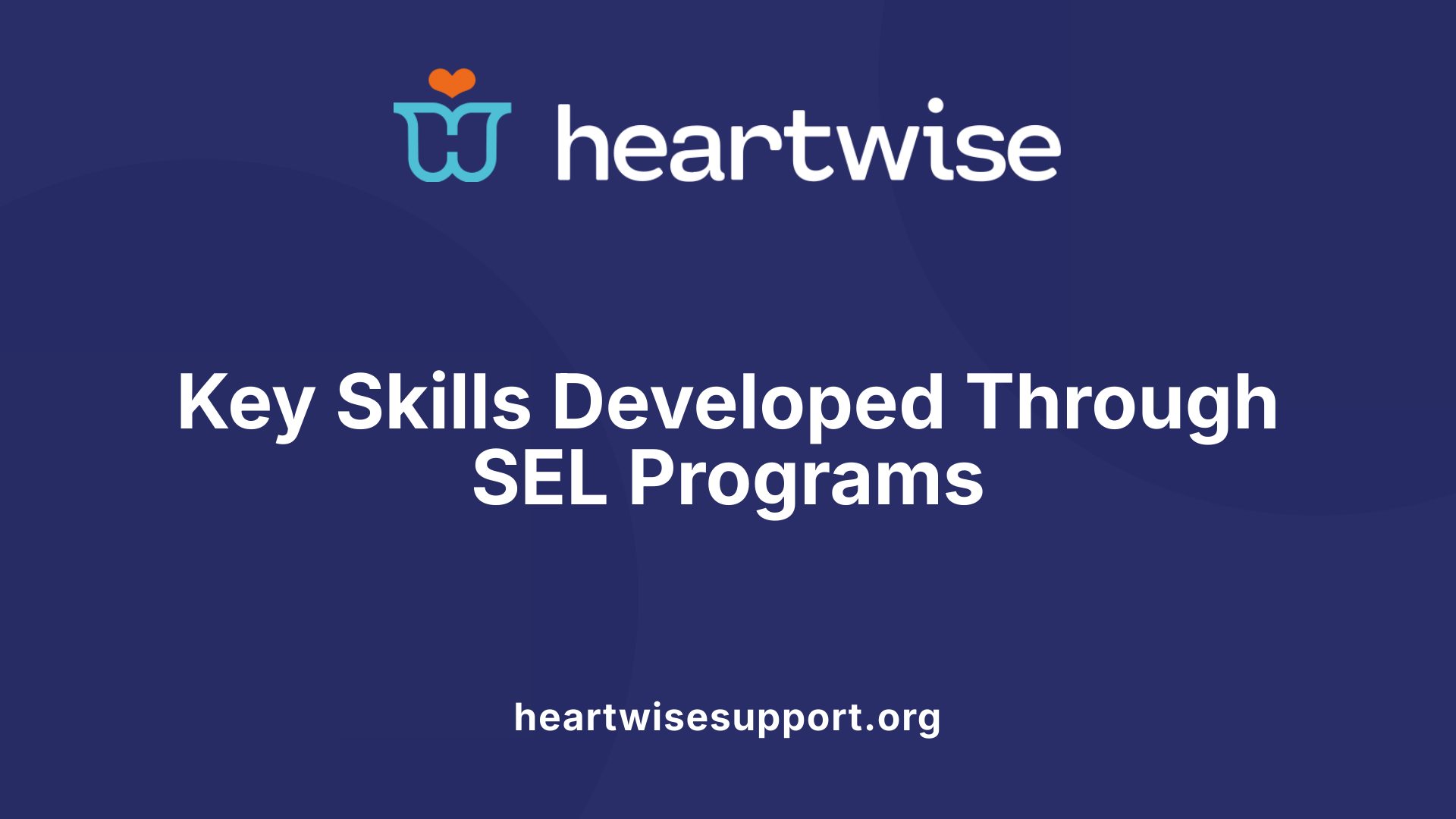Introduction to SEL
Social Emotional Learning (SEL) is gaining recognition as a critical component of educational success. Often abbreviated as SEL, it encompasses a set of skills aimed at helping individuals manage emotions, form supportive relationships, and make constructive choices. Despite its significance, understanding the depth and breadth of SEL and its impact on student development remains a priority for educators, policymakers, and parents alike. This article dives deep into understanding what SEL is, its proven benefits, and its long-term implications for academic and personal success.
Understanding Social Emotional Learning

What is social-emotional learning (SEL) and why is it important?
Social-emotional learning (SEL) is an educational framework that emphasizes the development of essential skills to understand and manage emotions, establish supportive relationships, and make responsible decisions. This learning process is crucial because it enhances self-awareness, builds empathy, and develops emotional intelligence, which are vital for productive interpersonal interactions both in and out of school.
Research indicates that participation in SEL programs can lead to notable improvements in academic performance, with students achieving an average increase of 11 percentile points in their grades. This not only reflects enhanced academic capabilities but also better attendance and engagement in learning activities.
Moreover, SEL fosters a positive school climate by reducing stress and behavioral issues, creating an environment where students can flourish. By equipping students with resilience and coping strategies, SEL prepares them to navigate challenges effectively, contributing to their overall well-being and success in future endeavors.
Despite its recognized importance and the support it garners from parents, the integration of SEL into K-12 curricula remains inconsistent across many states, leaving room for improvement in educational practices.
Academic and Personal Gains from SEL

How does social-emotional learning benefit students in terms of academic performance and personal development?
Social-emotional learning (SEL) significantly enhances academic performance and nurtures personal development. Through SEL, students learn critical competencies such as self-awareness, emotional regulation, and resilience. These skills enable them to manage stress and navigate challenges with greater ease.
Research indicates that students participating in SEL programs see an average improvement in academic performance of 11 to 17 percentile points. This boost translates into higher grades, better attendance rates, and increased engagement in critical subjects like Mathematics, Reading, and Science. Not only does SEL support cognitive achievement, but it also fosters vital interpersonal skills, including effective communication and empathy.
Development of key personal skills
Moreover, SEL promotes the development of significant personal skills. Students engaged in SEL cultivate stronger relationships with peers and teachers, fostering a supportive classroom environment. This peer connection enhances self-esteem and emotional intelligence, laying a solid foundation for lifelong interpersonal success.
In essence, integrating SEL into the educational framework prepares students not just for academic success but also equips them with indispensable life skills necessary for personal growth and social well-being. These skills contribute to creating responsible, empathetic individuals who are ready to face future challenges.
SEL and Mental Health Improvements

Can the benefits of social-emotional learning extend to improvements in mental health and well-being?
Yes, the benefits of social-emotional learning (SEL) can extend to improvements in mental health and well-being. SEL promotes the development of essential skills such as emotional regulation, self-awareness, and interpersonal communication. These skills are crucial for coping with stress and building resilience.
By fostering supportive relationships and creating emotionally safe environments, SEL helps to mitigate risks associated with mental health challenges. Schools that implement SEL programs report enhanced emotional intelligence and witness improved academic performance alongside reduced behavioral issues. This reflects a holistic improvement in student well-being.
Examples of mental health benefits
- Lower Anxiety and Depression: Students in SEL programs show significant reductions in anxiety, stress, and depressive symptoms. They develop coping strategies that serve them well during stressful times.
- Increased Resilience: SEL equips students with skills to navigate challenges more effectively, allowing them to bounce back from setbacks and maintain their mental well-being.
- Improved Relationships: By nurturing social awareness and empathy, SEL fosters stronger relationships among peers and between students and teachers, contributing to a positive school climate that enhances mental health.
- Enhanced Sense of Belonging: Participation in SEL initiatives can lead to a greater sense of connection and community among students, decreasing feelings of isolation and loneliness.
Overall, SEL not only builds emotional intelligence but also serves as a foundational component for promoting mental health, equipping individuals with the tools needed to thrive both personally and socially.
Core Social Emotional Skills Developed

What are some specific examples of social-emotional skills developed through SEL programs?
Social Emotional Learning (SEL) programs actively cultivate a range of important social-emotional skills that contribute to students' personal growth and academic success. Some of the core skills developed through these programs include:
- Self-Awareness: Students learn to recognize their emotions, thoughts, and how they influence their behavior. This foundational skill helps them understand their strengths and weaknesses.
- Self-Management: This involves the ability to regulate emotions and behaviors, allowing students to cope with stress through strategies like mindfulness and deep breathing.
- Social Awareness: SEL promotes an appreciation for diversity, teaching students to understand and respect unique perspectives and experiences.
- Relationship Skills: Students develop the ability to establish and maintain healthy relationships through effective communication, teamwork, and conflict resolution.
- Responsible Decision-Making: This skill equips students to make constructive choices based on ethical considerations and available information, helping them navigate complex situations.
Practical examples of these skills
To illustrate how these competencies manifest in real-life scenarios, consider the following practical examples:
- Daily Emotional Check-Ins: Students share how they feel at the start of a day, fostering self-awareness and encouraging open dialogue about emotions.
- Journaling: Reflective writing enables students to process their feelings, leading to improved self-management and emotional regulation.
- Community-Building Activities: Group tasks that require collaboration not only enhance relationship skills but also help promote social awareness by appreciating diverse contributions.
These skills are essential for fostering a supportive learning environment, resulting in improved academic engagement and overall student well-being.
Effectiveness: The Research Speaks
What does research suggest about the effectiveness of social-emotional learning programs?
Research indicates that social-emotional learning (SEL) programs are remarkably effective at enhancing students' academic performance, mental wellness, and social competencies. Students participating in SEL initiatives can see an average boost of 11 percentile points in their academic achievements, which can translate to even greater gains over time, with long-term studies showing improvements of about 13 percentile points compared to peers not in SEL programs.
In addition to academic benefits, SEL programs create protective factors in students' lives. These initiatives foster supportive relationships and promote safe environments, significantly mitigating mental health risks often associated with anxiety and depression. As a result, students equipped with SEL skills are better prepared to handle emotional stressors, leading to improved well-being and academic outcomes.
Financially, the advantages of SEL become evident as well: for every dollar invested in these programs, there’s an estimated return of $11. This highlights not just their psychological benefits but also the economic gains associated with reduced future costs related to mental health issues and educational attrition.
Effectiveness across diverse settings
The effectiveness of SEL programs has been documented across various educational environments and demographic groups, ensuring inclusivity in implementation. Meta-analyses of hundreds of studies involving over 1 million students across more than 50 countries reaffirm the universal impact of SEL. Findings indicate that these programs provide consistent improvements in social skills, emotional regulation, and academic performance, reinforcing SEL as a vital component of modern education.
Challenges in Implementing SEL
What are the challenges or disadvantages of implementing social-emotional learning in schools?
Implementing social-emotional learning (SEL) in schools comes with a set of challenges that can hinder its adoption and effectiveness. One primary concern is the perception of insufficient research backing the efficacy of SEL programs. Critics argue that evidence supporting the importance of SEL in enhancing academic performance and mental health can be seen as lacking depth, leaving doubts about the tangible benefits of such initiatives.
Integration Difficulties
Additionally, integrating SEL into existing curricula can lead to conflicts. Some educators and stakeholders may see SEL as an agenda that prioritizes emotional development over traditional academic learning. This perspective can provoke resistance from parents and legislators who may not see the immediate academic benefits.
Ethical and Privacy Concerns
Another significant hurdle is the ethical implications of addressing students' emotional needs without proper training. Teachers, lacking specific qualifications in mental health, might unintentionally cross boundaries that could resemble unregulated therapy. This raises valid concerns around student privacy and emotional safety.
Financial Investments
The financial aspect presents yet another challenge. The investment in SEL programs often exceeds $30 billion annually, which prompts scrutiny regarding the effective allocation of resources. Critics question the return on such a significant financial investment, especially when reliable assessment methods to measure effectiveness are not firmly established, alongside ongoing political debates regarding SEL's role in education.
SEL and Lifelong Success
How is SEL linked to long-term success in various areas of life?
Social-Emotional Learning (SEL) is intricately linked to long-term success across personal, academic, and professional domains. At its core, SEL focuses on developing five crucial competencies: self-awareness, self-management, social awareness, relationship skills, and responsible decision-making. These essential skills not only enhance emotional intelligence but also foster resilience among students.
Research indicates that students engaged in effective SEL programs experience significant positive outcomes, such as improved academic performance and reduced stress, anxiety, and depression. This contributes to healthier interpersonal relationships and creates a supportive educational environment where students feel valued and included.
In the realm of personal and professional life, students who graduate with strong SEL skills report higher levels of well-being. They are often better equipped to navigate complex social situations, maintain engaged relationships, and demonstrate effective communication and conflict resolution skills. This foundational ability greatly improves their career prospects, job performance, and overall life satisfaction.
Moreover, SEL cultivates positive student-teacher relationships, further enhancing student engagement and leading to improved learning outcomes. As a consequence, individuals with well-developed SEL competencies are more likely to achieve significant milestones, such as high school graduation, stable employment, and fulfilling social connections, laying the groundwork for a successful and satisfying life.
Strategies for Successful SEL Integration
What are effective strategies for integrating social-emotional learning into educational practices?
Integrating social-emotional learning (SEL) into educational practices requires thoughtful strategies that align with existing academic frameworks. One effective approach is to embed SEL directly into academic priorities and content standards. This ensures that students are not only engaging in emotional and social skills but also applying them in relevant contexts.
A student-centered approach is crucial. Educators should be attuned to individual student needs, integrating SEL objectives alongside academic ones. For instance, incorporating group projects can foster teamwork, while reflective writing prompts promote self-awareness and emotional regulation.
Professional development is vital for teachers. Training should focus on facilitating classroom environments that nurture SEL competencies, emphasizing interactive teaching methods that encourage student engagement.
It is also beneficial to develop strong partnerships between SEL teams and academic departments. This collaboration enhances communication, ensuring that SEL initiatives resonate throughout the school’s curriculum and culture.
Lastly, ongoing evaluation of SEL programs is essential. Schools should adopt a clear administrative vision, regularly assessing the effectiveness of SEL strategies to adapt to changing student needs and contexts.
The Future of SEL: Trends and Opportunities

Emerging trends in SEL
Social Emotional Learning (SEL) continues to evolve, driven by an increasing recognition of its importance for holistic education. One notable trend is the integration of SEL with academic subjects, ensuring students develop social-emotional skills alongside academic knowledge. Programs like Lexia's Core5 Reading incorporate SEL principles into literacy instruction, helping students engage more deeply with content while improving their emotional development.
Additionally, technology plays a crucial role in shaping the future of SEL. Online platforms and mobile applications are being developed to enhance SEL training for educators, providing resources and interactive tools to embed SEL practices within the classroom.
Future research and development opportunities
Future research in SEL should focus on studying long-term impacts, inclusivity, and strategies tailored to diverse student populations. Exploring SEL's effectiveness across different cultural contexts can help optimize interventions and achieve broader engagement.
Another area for growth is the professional development of educators. Investing in training not only empowers teachers but also fosters an SEL-oriented school climate, which has proven to be crucial for enhancing student outcomes. Such comprehensive approaches may establish benchmarks for future SEL programs, promoting uniform success across various educational settings.
Conclusion: SEL's Unyielding Influence
Social Emotional Learning encapsulates the diverse interplay between emotional intelligence, personal development, and academic success. Its presence fosters environments where students are supported emotionally and academically, providing them with skills that propel lifelong success. By addressing challenges to SEL integration, and fostering robust research and development, the future holds promise for even broader application. SEL not only enhances individual growth but also contributes to creating communities characterized by empathy, resilience, and unity.
References
- What is Social Emotional Learning (SEL): Why It Matters | NU
- What Does the Research Say? - CASEL
- Research Finds Social and Emotional Learning Produces ...
- Evidence for Social and Emotional Learning in Schools
- Why Social and Emotional Learning Is Essential for Students
- Enhancing Student Literacy: How Social-Emotional Learning Boosts ...
- [PDF] The Positive Impact of Social and Emotional Learning for ... - CASEL

.png)









